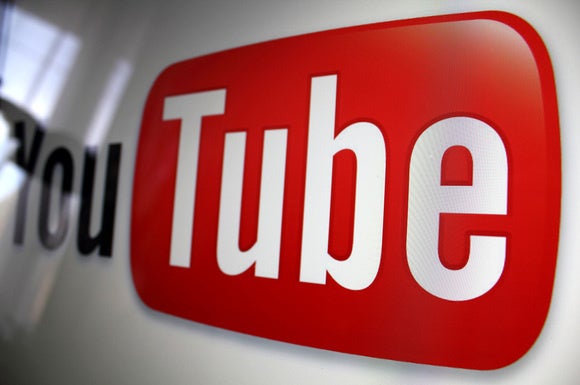How Much Money Does 10 Million Views On Youtube Make
![]()
By , Senior Associate Editor, Computerworld |
About |
A daily digest of IT news, curated from blogs, forums and news sites around the web each morning. We highlight the key commentary and demystify the real story.
Want to make money from YouTube? Just get 10k views first

Is YouTube stardom in your future? Could be, but the platform just made it a little bit harder to make money off of your videos.
At least initially. The company is instituting a change where new creators won't start making money right away -- and perhaps not everyone will be accepted into its Partner Program. But don't worry yet, because the threshold to enter the program is still relatively low. So what do you need to know?
In IT Blogwatch, we make some cat videos.
So what is going on? Dave Smith shares some background:
YouTube...said...creators would no longer be able to monetize their channels until they received 10,000 lifetime views.
...
Once a channel reaches that threshold, YouTube will review it against its policies to see if the channel is OK to begin making money..this is...to help discourage scam artists and content creators that violate YouTube's policy from making money on the platform.
OK, but can we get some more info? Allen Cone adds some details:
YouTube...announced changes after several big companies pulled their advertising from...YouTube after their ads appeared in extremist hate-speech videos.
...
On March 24, the head of the Association of National Advertisers...urged Google to change its policy.
But that is not the reason that YouTube gave for the change, is it? YouTube's Ariel Bardin gives us the official company line:
We've started seeing cases of abuse where great, original content is re-uploaded by others who try to earn revenue from it. To help protect creator revenue, we recently made it easy...to report an impersonating channel...this change has helped us terminate hundreds of thousands of channels violating our policies. Now, we're taking another step to protect creators by updating the thresholds required to join the YouTube Partner Program.
What exactly is the YouTube Partner Program, anyway? Kukil Bora explains:
The company's YouTube Partner Program...has...allowed anyone to sign up for the service and start uploading videos. Over the years, the service has become a source of income for many people as it allows anyone with a YouTube account to start getting paid for ads almost immediately.
So what is going to change now? Valentina Palladino clears things up:
YouTube...is placing stricter guidelines on who can make money from the Partner Program...anyone can still apply to be in the YouTube Partner Program, but YouTube...[will] be adding a review process for new applicants in the coming weeks. It appears future applicants won't be accepted into the Partner Program until they surpass that 10,000-view milestone.
...
It's important to note that the threshold is 10,000 total views -- not total subscribers...If you're currently a member of the Partner Program but don't have 10,000 total views, you don't have to worry -- all revenue earned by these channels won't be affected.
Won't this be bad for new creators? Laharee Chatterjee and Julia Love explain why it will be good overall:
While some fear small creators could be hurt by restrictions, the 10,000-view threshold is so low that it will not hamper any people who make a living from their channels...Creators understand that YouTube must protect its image to retain the ad dollars they depend on.
But could this change have any negative consequences? Lauren Rearick brings up one possible affect:
Hopefully YouTube's review of content aligning with policies doesn't mean an infringement on creativity. Last month, YouTube came under fire when numerous LGBTQ videos were censored as a result of "community flagging." The platform has since apologized for the miscategorization, but has yet to announce how future material would be deemed sensitive. As they...begin taking a closer look at creators, perhaps they'll arrive at a more definitive answer of what content will fall under the platform's "Restricted Mode."
Seriously, though, are there any other reasons for the change? Elizabeth Weise has a theory:
YouTube...seeks to broaden from simply being a site where people could upload cat videos to a major player on the media scene.
Rebecca Linke is a Senior Associate Editor at Computerworld who writes about social media and personal technology. She also helps manage Computerworld's Facebook and Google+ pages.
Copyright © 2017 IDG Communications, Inc.
How Much Money Does 10 Million Views On Youtube Make
Source: https://www.computerworld.com/article/3188345/want-to-make-money-from-youtube-just-get-10k-views-first.html
Posted by: yountshareade.blogspot.com

0 Response to "How Much Money Does 10 Million Views On Youtube Make"
Post a Comment